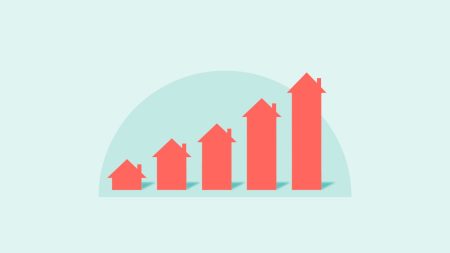The typical American household currently carries $7,951 in credit card debt, according to the Q1 2024 data from the U.S. Census Bureau and the Federal Reserve Bank of New York.
As a financial coach, many learners of my program invest in the stock market as a well-intended step toward building wealth. They hope to use their investments to offset their debt.
However, if you’re trying to pay off credit card debt, you’re likely battling sky-high interest rates, often between 15% and 25% or more. Here’s why wiping out that debt should be your top priority before investing any more money into the stock market.
You’ll Likely Need A Great Credit Score Sooner Than Later
It’s a common misconception that having more investments increases your credit score. In reality, how much money you have in investments is not considered when calculating your credit score. But keeping your credit card balance at zero is a huge part of boosting your score.
Responsible investing is a long-term habit geared toward securing financial stability in your future years, or perhaps even decades from now. But like many Americans, you may need to rely on loans to buy your next purchases such as a car or a home, unless you already come from a wealthy family.
Eliminating credit card debt will significantly improve your credit score, making lower interest rates available to you on loans and mortgages. For example, using a mortgage amortization calculator, a 7% interest rate on a 30-year loan for an amount of $400,000 would create a monthly payment of $2,661 with a total interest amount of $558,036 over the life of the loan.
A loan for the same amount and term length with an interest rate of 6% would mean a monthly payment of $2,398. That may seem like a small difference. But over the life of the loan, the total interest would be $463,352. That’s a difference of $94,684 just by having a lower interest rate over the total loan period.
The difference in lower interest rates for a mortgage can mean tens of thousands of dollars in savings.
Your Credit Card Debt Is The Bank’s Passive Income
Compound interest can be your best friend or your worst enemy. While it can work wonders for your investments, it will make your credit card balances overwhelming to manage if you let your debt linger for too long. Many of my financial education program participants carry balances longer than they expected. The more interest compounds your debt over time, the harder it is to plan to pay those balances down.
Even if you have a stellar stock portfolio, the average annual return might hover around 7% to 10%. This means the interest on your credit card debt is likely eating up any gains you’d make from your investments, leading to a net loss.
By eliminating your credit card debt first, you stop the cycle of compounding interest working against you. You’re freeing up more money to invest and letting compound interest work for you instead of for the bank.
One simple tip: Call your credit card company and ask for a lower interest rate. If you’ve been a longtime customer and you can demonstrate that you have another credit card offer, I’ve seen many companies grant the request.
You’ll Enjoy A More Sustainable Cash Flow
Carrying high-interest debt is not just a financial burden; it’s a mental one, too. Investing in the stock market involves risk, and the value of your investments can swing wildly. If you’re already stressed by debt payments, adding the volatility of market investments can amplify your financial anxiety.
I still have two credit cards. One is for personal expenses and the other is for business expenses. But I make sure to pay them off weekly so those costs don’t creep up faster than I can manage.
Perhaps the best benefit of paying off your credit card debt is it boosts your monthly cash flow. Without those debt payments draining your budget, you’ll have more disposable income to allocate toward investments in the future. This not only allows you to invest more but also gives you the flexibility to seize investment opportunities as they arise.
I’ve been completely debt-free for several years, and I can personally attest to the peace of mind it brings to my daily life. Knowing that you’re not lugging around the burden of high-interest debt allows you to focus entirely on your investment strategy and long-term financial goals, instead of growing bills to pay.
Paying off your debt allows you to invest with a clear, calm mind. Once your credit cards are cleared, you can approach investing with confidence, knowing your returns aren’t being eaten away.
Read the full article here
















